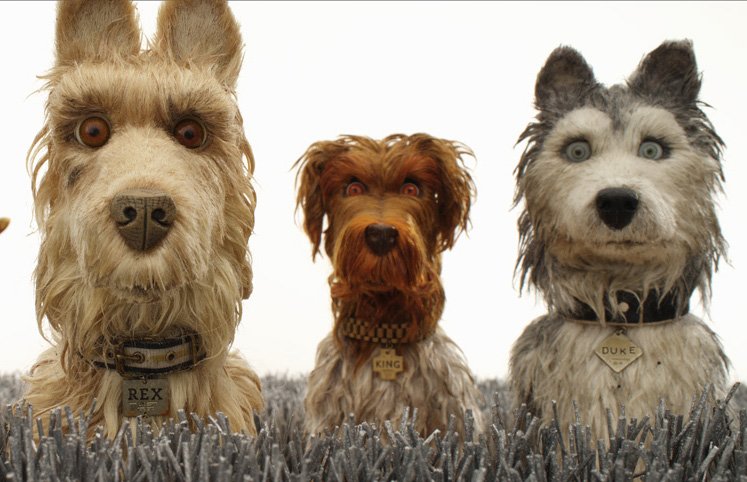 Rating:
Rating:
8.5 out of 10
Cast:
Bryan Cranston as Chief
Koyu Rankin as Atari Kobayashi
Edward Norton as Rex
Bob Balaban as King
Bill Murray as Boss
Jeff Goldblum as Duke
Kunichi Nomura as Mayor Kobayashi
Akira Takayama as Major Domo
Greta Gerwig as Tracy Walker
Frances McDormand as Interpreter Nelson
Akira Ito as Professor Watanabe
Scarlett Johansson as Nutmeg
Harvey Keitel as Gondo
F. Murray Abraham as Jupiter
Yoko Ono as Assistant Scientist Yoko Ono
Tilda Swinton as Oracle
Ken Watanabe as Head Surgeon
Mari Natsuki as Auntie
Fisher Stevens as Scrap
Nijiro Murakami as Editor Miroshi
Liev Schreiber as Spots
Courtney B. Vance as the narrator
Yojiro Noda as News Anchor
Frank Wood as Simul-Translate Machine
Directed by Wes Anderson
Isle of Dogs Review:
It shouldn’t surprise anyone familiar with Wes Anderson’s work (The Grand Budapest Hotel) that it is supremely suited to animation, maybe even more so than live action. From the acute and specifically-detailed production design to the controlled and idiosyncratic acting style required of the people who populate it, in animation his areas of focus go from fetishes to requirements. Starting with a blank piece of paper (or stage in this case), he no long has to fight to transform our mundane world into the fantastical one he imagines but can build exactly what he imagines from the ground up with no pesky problems like physics to get in his way. As much as this was hinted at in his adaptation of Fantastic Mr. Fox, Anderson’s first original animated film makes the strongest case yet that this is where his talents find their fullest flower. Lyrical, whimsical and strange, Isle of Dogs is a Wes Anderson movie through and through. That’s a good thing.
And even more so than Fox, Isle of Dogs is the kind of story that only animation can tell in a way that little studio animated fair outside of Pixar really attempt. In some vaguely ‘other’ world (the one all Anderson films have existed in since at least The Royal Tenenbaums and definitely since The Life Aquatic with Steve Zissou), dogs have been outlawed from Megacity, Japan. Removed from their beloved masters, they’ve been exiled to a nearby island as part of the final conflict between dog lovers and cat lovers. One master isn’t going to take this lying down – young Akira Kobayashi (Rankin) instead decides he’s going to fetch his pet/bodyguard Spots (Schreiber) from the island, and if that means leading a revolt against his uncle the Mayor’s dog-hating government then so be it.
Oh, and it’s told mostly from the dog’s point of view, primarily an old stray named Chief (Cranston) – one of the few dogs who doesn’t particularly care about returning to the mainland or finding a master. Most of growing acting company comes along including Edward Norton, Jeff Goldblum, Bill Murray, Bob Balaban and Tilda Swinton, along with newcomers like Cranston and Greta Gerwig as an inquisitive transfer student from Ohio (both of whom I suspect we’ll see in Anderson films in the future), plus a large Japanese cast with the film largely told without subtitles aside from a few specific translations. There’s a narrator (Vance), natch, strangely malevolent figures who tend to be under-characterized but also terribly misunderstood and a profound mix of deadpan delivery and sudden turns into the macabre.
Make no mistake about it, Dogs is a Wes Anderson movie through and through.
Every visual tic Anderson has ever been attracted to is represented here, and then some. Eccentric, claustrophobic, almost inhuman architecture? Check. Improbably personalized devices like Atari’s personal plane or the Mayor’s robo-dogs? Check. Camera motion confined to tilts and pans on largely flat compositions designed to turn every set into a proscenium? Check. Pouches filled with tiny, exact implements of personal utility – like Atari’s dog grooming kit – which nevertheless are enough for every task regardless of scope, multiplying in size as needed like the loaves and the fishes? Check. But where this can take you out of his live-action films if you’re not prepared for it, it has the opposite effect in Dogs, creating a living, breathing world you are dared not to believe in. The animation is both beautiful and rickety the way a Wes Anderson world is. It’s a world which is described primarily by its creator’s need to control every element in it to produce the effect he wants; in Dogs’ animated world, this is a positive, giving the world and its events life and soul.
None of which would work if Anderson’s storytelling wasn’t as good as it is. His characters are as deceptively simple as his world, existing for expositional reasons right up until the moment comes for one to expose a carefully detailed bit of inner life. It shows in the quality of voice performances Anderson is able to get from his cast, particularly Cranston, who carries so much of the film’s soul as a dog who bites but doesn’t know why. At the same time, the choice to keep all of the Japanese characters’ performance a mystery to anyone who doesn’t speak Japanese forces him to ever greater heights of visual storytelling in order to make sure the purpose of each scene is understood. [One wonders what the effect is like watching it in Japan where the smaller number of English-speaking characters become the mystery].
If there is a criticism to be made (and I do have to confess myself a long-time Anderson admirer who is predisposed to like most of what he makes), it is Anderson’s inability/unwillingness to engage with tragedy. [Life Aquatic, my favorite Anderson film, is the one that has come closest to doing so]. As his career goes on, he begins to resemble more and more post-’70s Woody Allen with the way he flirts with unctuous characters reveling in their most unbecoming elements before turning in favor of a more sentimental ending which may not be entirely deserved. There’s no need for this kind of material to be Michael Haneke depressing to make its point or be of high quality, but painting with some new colors is the best way to avoid a rut.
Plenty of artists have done just fine making the same kind of movie over and over again, refining their particular vision to a fine point (even at the cost of reaching the most people at any given time). If the worst that ever happens to Wes Anderson is he keeps making Wes Anderson films, if Isle of Dogs is any clue, that’s not a bad place to be.
Isle of Dogs
-
Isle of Dogs Art Exhibit

-
Isle of Dogs Art Exhibit

-
Isle of Dogs Art Exhibit

-
Isle of Dogs Art Exhibit

-
Isle of Dogs Art Exhibit

-
Isle of Dogs Art Exhibit

-
Isle of Dogs Art Exhibit

-
Isle of Dogs Art Exhibit

-
Isle of Dogs Art Exhibit

-
Isle of Dogs Art Exhibit

-
Isle of Dogs Art Exhibit

-
Isle of Dogs Art Exhibit

-
Isle of Dogs Art Exhibit

-
Isle of Dogs Art Exhibit

-
Isle of Dogs Art Exhibit

- New York, NY - 11/8/18 - "Isle Of Dogs" Art Show Preview at Parasol Projects Gallery-Pictured: Atmosphere-Photo by: Dave Allocca / StarPix-Location: Parasol Projects Gallery, NYC
-
Isle of Dogs Art Exhibit

- New York, NY - 11/8/18 - "Isle Of Dogs" Art Show Preview at Parasol Projects Gallery-Pictured: Atmosphere-Photo by: Dave Allocca / StarPix-Location: Parasol Projects Gallery, NYC
-
Isle of Dogs Art Exhibit

- New York, NY - 11/8/18 - "Isle Of Dogs" Art Show Preview at Parasol Projects Gallery-Pictured: Atmosphere-Photo by: Dave Allocca / StarPix-Location: Parasol Projects Gallery, NYC
-
Isle of Dogs Art Exhibit

- New York, NY - 11/8/18 - "Isle Of Dogs" Art Show Preview at Parasol Projects Gallery-Pictured: Atmosphere-Photo by: Dave Allocca / StarPix-Location: Parasol Projects Gallery, NYC
-
Isle of Dogs Art Exhibit

- New York, NY - 11/8/18 - "Isle Of Dogs" Art Show Preview at Parasol Projects Gallery-Pictured: Atmosphere-Photo by: Dave Allocca / StarPix-Location: Parasol Projects Gallery, NYC
-
Isle of Dogs Art Exhibit

- New York, NY - 11/8/18 - "Isle Of Dogs" Art Show Preview at Parasol Projects Gallery-Pictured: Atmosphere-Photo by: Dave Allocca / StarPix-Location: Parasol Projects Gallery, NYC
-
Isle of Dogs Art Exhibit

- New York, NY - 11/8/18 - "Isle Of Dogs" Art Show Preview at Parasol Projects Gallery-Pictured: Atmosphere-Photo by: Dave Allocca / StarPix-Location: Parasol Projects Gallery, NYC
-
Isle of Dogs Art Exhibit

- New York, NY - 11/8/18 - "Isle Of Dogs" Art Show Preview at Parasol Projects Gallery-Pictured: Atmosphere-Photo by: Dave Allocca / StarPix-Location: Parasol Projects Gallery, NYC
-
Isle of Dogs Art Exhibit

- New York, NY - 11/8/18 - "Isle Of Dogs" Art Show Preview at Parasol Projects Gallery-Pictured: Atmosphere-Photo by: Dave Allocca / StarPix-Location: Parasol Projects Gallery, NYC
-
Isle of Dogs Art Exhibit

- New York, NY - 11/8/18 - "Isle Of Dogs" Art Show Preview at Parasol Projects Gallery-Pictured: Atmosphere-Photo by: Dave Allocca / StarPix-Location: Parasol Projects Gallery, NYC
-
Isle of Dogs Art Exhibit

- New York, NY - 11/8/18 - "Isle Of Dogs" Art Show Preview at Parasol Projects Gallery-Pictured: Atmosphere-Photo by: Dave Allocca / StarPix-Location: Parasol Projects Gallery, NYC
-
Isle of Dogs Art Exhibit

- New York, NY - 11/8/18 - "Isle Of Dogs" Art Show Preview at Parasol Projects Gallery-Pictured: Atmosphere-Photo by: Dave Allocca / StarPix-Location: Parasol Projects Gallery, NYC
-
Isle of Dogs Art Exhibit

- New York, NY - 11/8/18 - "Isle Of Dogs" Art Show Preview at Parasol Projects Gallery-Pictured: Atmosphere-Photo by: Dave Allocca / StarPix-Location: Parasol Projects Gallery, NYC
-
Isle of Dogs Art Exhibit

- New York, NY - 11/8/18 - "Isle Of Dogs" Art Show Preview at Parasol Projects Gallery-Pictured: Atmosphere-Photo by: Dave Allocca / StarPix-Location: Parasol Projects Gallery, NYC
-
Isle of Dogs Art Exhibit

- New York, NY - 11/8/18 - "Isle Of Dogs" Art Show Preview at Parasol Projects Gallery-Pictured: Atmosphere-Photo by: Dave Allocca / StarPix-Location: Parasol Projects Gallery, NYC
-
Isle of Dogs Art Exhibit

- New York, NY - 11/8/18 - "Isle Of Dogs" Art Show Preview at Parasol Projects Gallery-Pictured: Atmosphere-Photo by: Dave Allocca / StarPix-Location: Parasol Projects Gallery, NYC
-
Isle of Dogs Art Exhibit

- New York, NY - 11/8/18 - "Isle Of Dogs" Art Show Preview at Parasol Projects Gallery-Pictured: Atmosphere-Photo by: Dave Allocca / StarPix-Location: Parasol Projects Gallery, NYC
-
Isle of Dogs Art Exhibit

- New York, NY - 11/8/18 - "Isle Of Dogs" Art Show Preview at Parasol Projects Gallery-Pictured: Waris Ahluwalia-Photo by: Dave Allocca / StarPix-Location: Parasol Projects Gallery, NYC
-
Isle of Dogs Art Exhibit
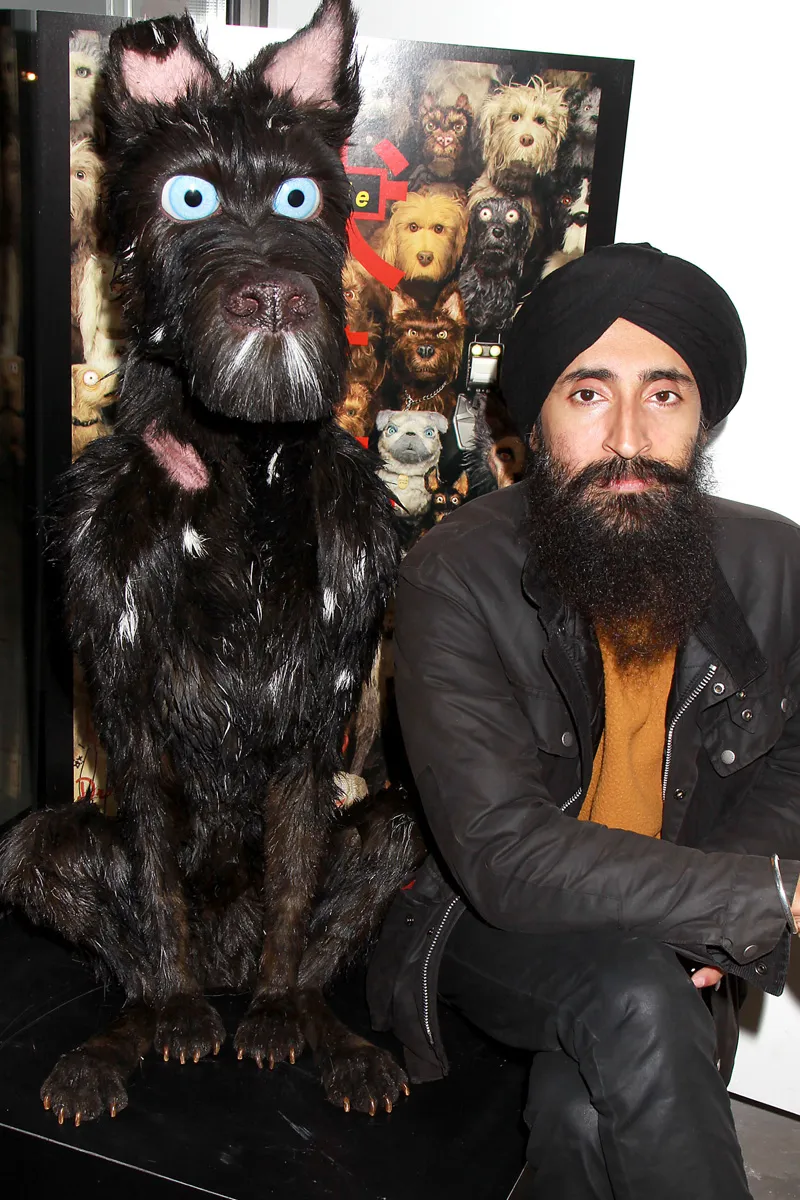
- New York, NY - 11/8/18 - "Isle Of Dogs" Art Show Preview at Parasol Projects Gallery-Pictured: Waris Ahluwalia-Photo by: Dave Allocca / StarPix-Location: Parasol Projects Gallery, NYC
-
Isle of Dogs Art Exhibit

- New York, NY - 11/8/18 - "Isle Of Dogs" Art Show Preview at Parasol Projects Gallery-Pictured: Waris Ahluwalia-Photo by: Dave Allocca / StarPix-Location: Parasol Projects Gallery, NYC
-
Isle of Dogs Art Exhibit

- New York, NY - 11/8/18 - "Isle Of Dogs" Art Show Preview at Parasol Projects Gallery-Pictured: Andrew Weiselum, Jermey Dawson, Kaoru Watanabe-Photo by: Dave Allocca / StarPix-Location: Parasol Projects Gallery, NYC
-
Isle of Dogs Art Exhibit

- New York, NY - 11/8/18 - "Isle Of Dogs" Art Show Preview at Parasol Projects Gallery-Pictured: Jay McInerney-Photo by: Dave Allocca / StarPix-Location: Parasol Projects Gallery, NYC
-
Isle of Dogs Art Exhibit

- New York, NY - 11/8/18 - "Isle Of Dogs" Art Show Preview at Parasol Projects Gallery-Pictured: Tristan Oliver, Jermey Dawson-Photo by: Dave Allocca / StarPix-Location: Parasol Projects Gallery, NYC
-
Isle of Dogs Art Exhibit

- New York, NY - 11/8/18 - "Isle Of Dogs" Art Show Preview at Parasol Projects Gallery-Pictured: Andy Gent, Kaoru Watanabe-Photo by: Dave Allocca / StarPix-Location: Parasol Projects Gallery, NYC
-
Isle of Dogs Art Exhibit

- New York, NY - 11/8/18 - "Isle Of Dogs" Art Show Preview at Parasol Projects Gallery-Pictured: Waris Ahluwalia, Andrew Weiselum-Photo by: Dave Allocca / StarPix-Location: Parasol Projects Gallery, NYC
-
Isle of Dogs Art Exhibit
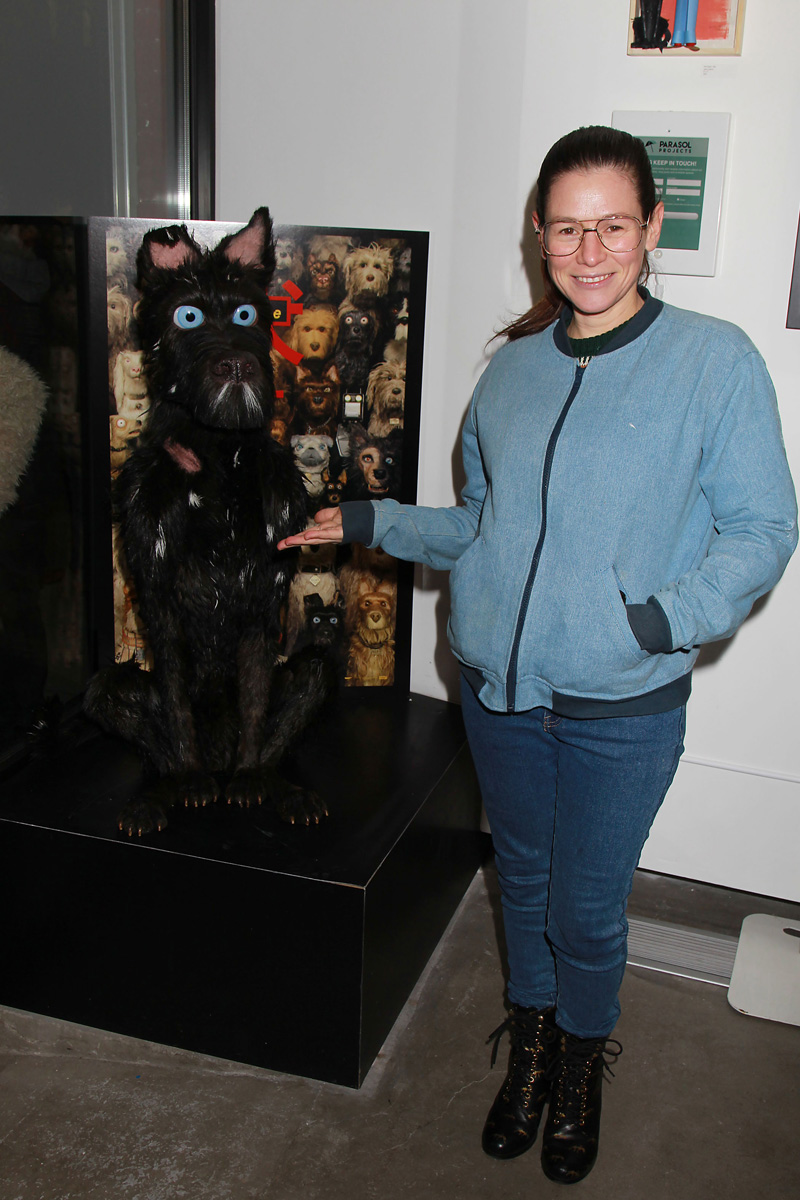
- New York, NY - 11/8/18 - "Isle Of Dogs" Art Show Preview at Parasol Projects Gallery-Pictured: Wael Stone-Photo by: Dave Allocca / StarPix-Location: Parasol Projects Gallery, NYC
-
Isle of Dogs Art Exhibit

- New York, NY - 11/8/18 - "Isle Of Dogs" Art Show Preview at Parasol Projects Gallery-Pictured: Kaoru Watanabe-Photo by: Dave Allocca / StarPix-Location: Parasol Projects Gallery, NYC
-
Isle of Dogs Art Exhibit

- New York, NY - 11/8/18 - "Isle Of Dogs" Art Show Preview at Parasol Projects Gallery-Pictured: Andrew Weiselum, Waris Ahluwalia, Jermey Dawson, Kaoru Watanabe-Photo by: Dave Allocca / StarPix-Location: Parasol Projects Gallery, NYC
-
Isle of Dogs Art Exhibit

- New York, NY - 11/8/18 - "Isle Of Dogs" Art Show Preview at Parasol Projects Gallery-Pictured: Sarita Choudhury-Photo by: Dave Allocca / StarPix-Location: Parasol Projects Gallery, NYC
-
Isle of Dogs
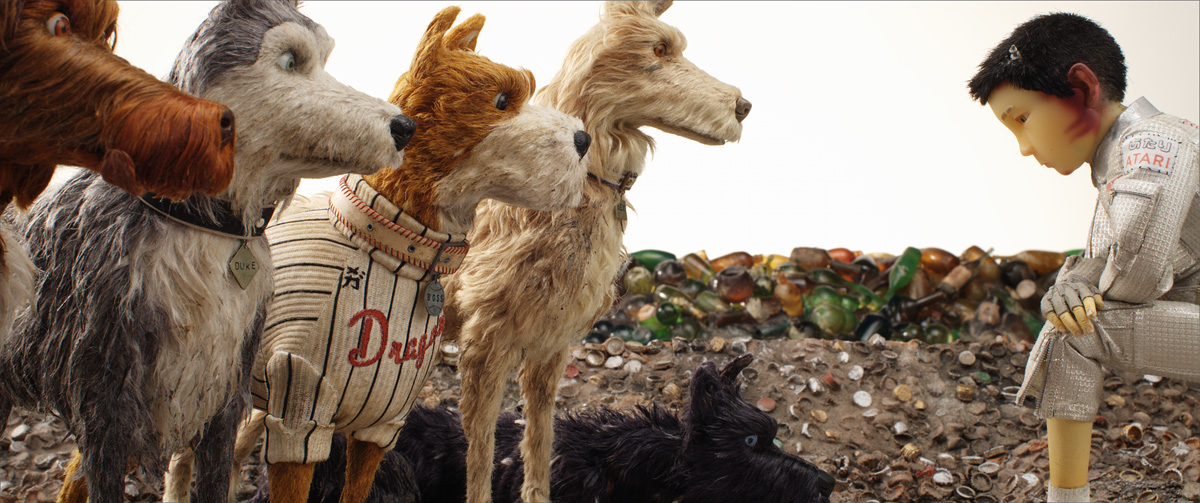
-
Isle of Dogs
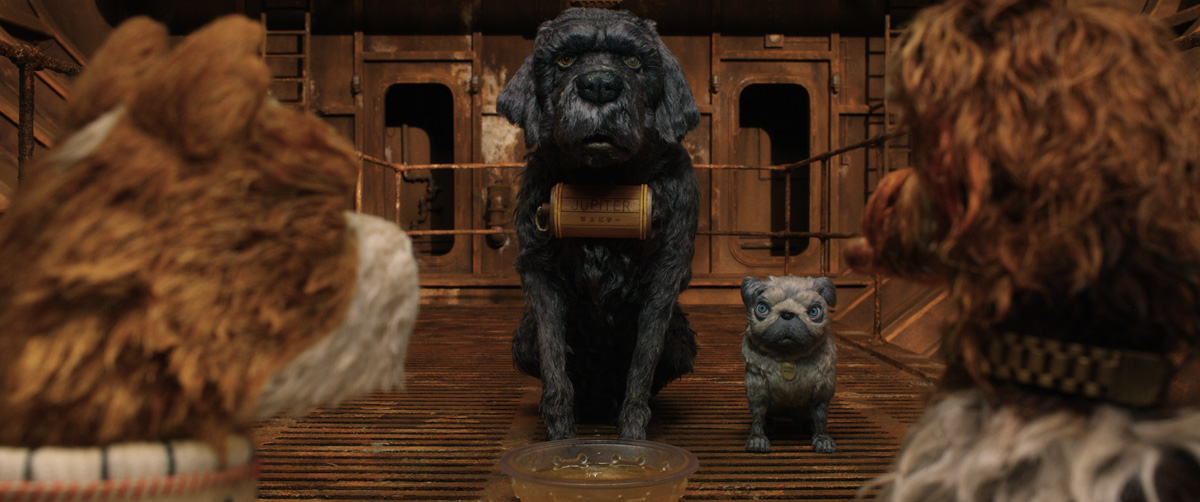
-
Isle of Dogs
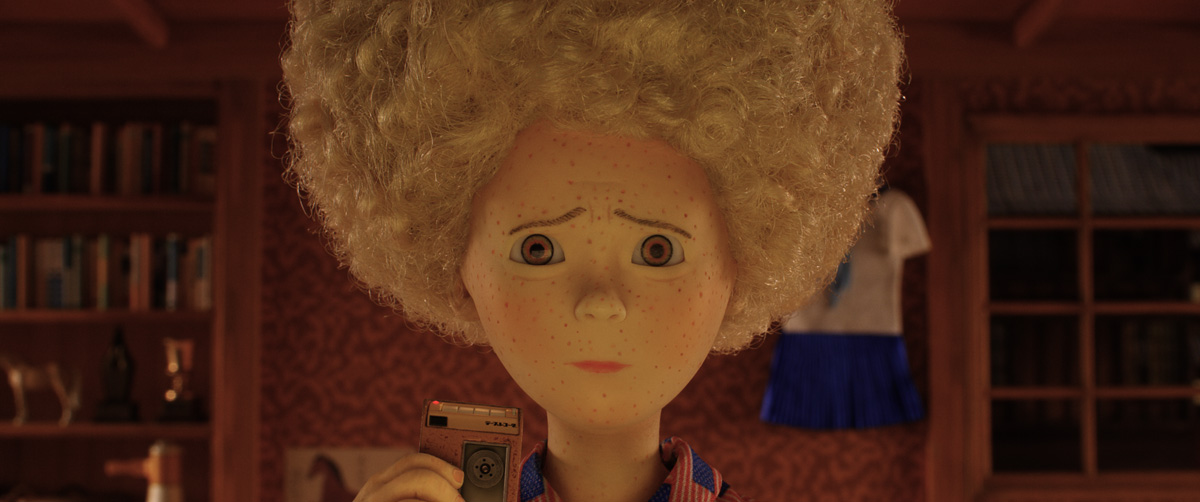
-
Isle of Dogs

-
Isle of Dogs

-
Isle of Dogs

-
Isle of Dogs
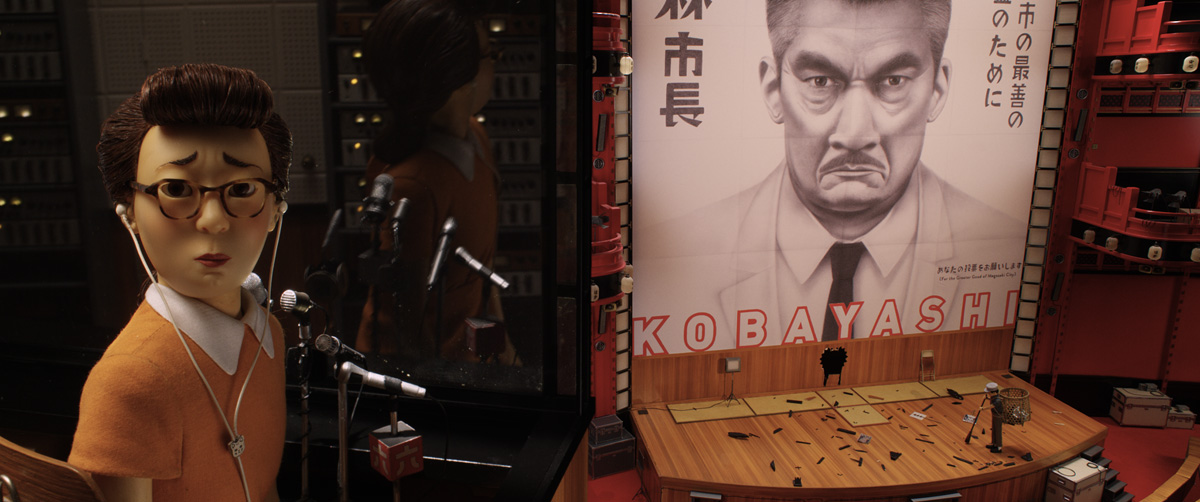
-
Isle of Dogs
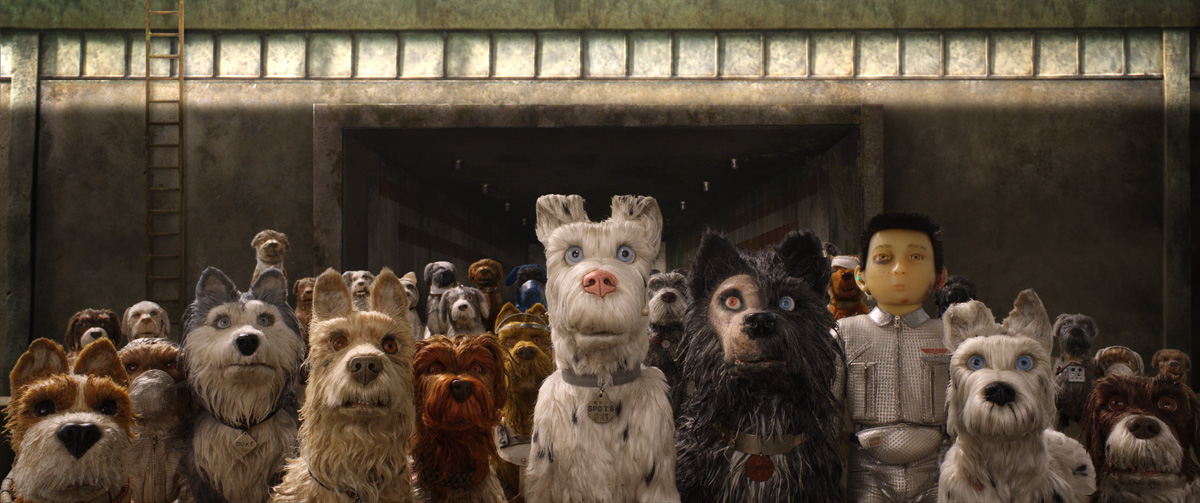
-
Isle of Dogs

-
Isle of Dogs

-
Isle of Dogs

-
Isle of Dogs

-
Isle of Dogs

-
Isle of Dogs

-
Isle of Dogs

-
Isle of Dogs

-
Isle of Dogs

